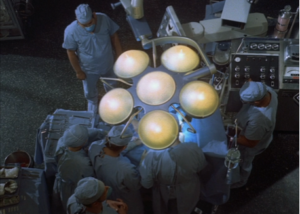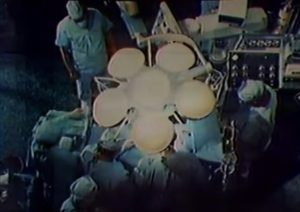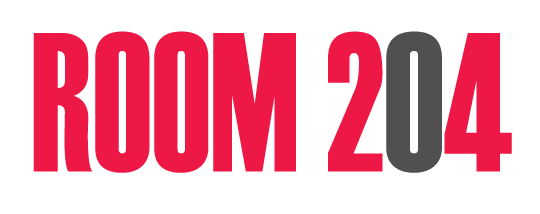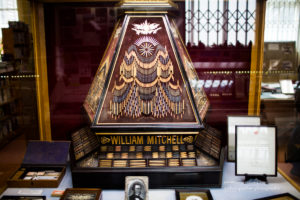I need you to work with me on this. There’s a huge part of me that wants to tell you what I did last year. A huge part of that huge part is because I’ll dismiss everything, forget everything, and concentrate instead on what I failed to do if I don’t write it down somewhere like this. If I don’t tell you, basically.
I have written “A few thrilling moments” before – the title is a quote from Grosse Pointe Blank – but I haven’t for a long time and I wasn’t going to show you this year either. But I got a lot of response over Christmas from a tweet and a Facebook status where I recommended that you write this stuff down, specifically if you find New Year’s Eve hard.
Because, man, it’s hard sometimes. I can be having a fine old time and then midnight strikes like a hammer. All I can think of then is what I have failed to do all year and there’s of course so much of it that this thinking takes up the entire next day and multiple aspirin.
Plus, a friend, Heddwen Creaney, wrote her version on Facebook and it was so good that it lifted me, it emboldened me.
So may I tell you about my 2019? If that doesn’t already seem a very long time ago.
For a start, it included the best thing I’ve ever written, so far anyway, which was an incredibly short but deeply intense series of lines of dialogue for the National Trust’s What Is Home project, currently on display at Croome. That was more than a year’s work on what must’ve ended up at around 300 words. Worth every minute.
Also in 2019, I took a week-long research trip to Hull and that is the first time in my career that I’ve ever spent a continuous week on a single drama project. And I produced and directed a Cucumber night of theatre at the Birmingham Rep. That included a brief off-stage spot of acting from me because I was too cheap to hire another actor. And that may have led me to performing short stories of mine at Mouth Pieces or anywhere else that would have me.
I wrote something like 30,000 words in a month by month review of the year for AppleInsider.com, for where I also wrote many hundreds of features and news articles across the whole of 2019.
BBC Radio Wales got me on the phone once as a TV expert, and then BBC Radio Stoke immediately did the same, followed by my first time speaking down an ISDN line to BBC Five Live. I’ve done down the line before, representing Radio Times, but this was a first as myself. And it threw me a little: untold years ago, I used to earn a nice fiver during a BBC Radio WM early morning shift by showing people how to use the NCA Studio (News and Current Affairs) when they were guests on the Today programme. And now someone had to show me how to do it too.
That was in the BBC Mailbox, but Rosie Boulton came to my office to record me for a BBC Radio 4 documentary about writers in Birmingham. She followed one day across the city and I was first up in the documentary because I was first up in the day.
I ran the Room 204 buddying programme for my fifth year and started my first online mailing list for writing projects in 2020. That feels like the next thing I should do: in 2019 I did 90 workshops or other public speaking engagements for various firms and it’s a bit scattershot, I can’t tell you much in advance when or what they’re going to be, and I want to sort that out. Please consider this your personal invitation to join that list of mine: it’d be weird not having you on there.
Mind you, that 90 for other people and organisations did include working on some tremendous projects which were a true privilege to be involved in. I ran or assisted running Writing West Midlands’s Spark Young Writers’ workshops in Walsall and Wolverhampton, for instance. Through that same organisation’s National Writers’ Conference, I finally got to work with friends like Tom Wentworth, Stephanie Ridings, Lisa Blower and Casey Bailey, whose writing I deeply admire, plus spoke on a panel where I learned far more from fellow panelists than I contributed.
Speaking of speaking, I also spoke a couple of times at the National Youth Film Academy. I got to be a part of the Solihull BookFest where it turns out that an attendee had come there in part to check me out.
I didn’t know which person it was, or that they were there for that, but I seemed to do okay because I consequently got hired for a day working with USA teenagers. That was amazing, actually, there’s this decades-old education organisation called Experiment in International Living and I got to be part of the tour they gave these American teens.
Then the 90 speaking things doesn’t include something like 45 podcasts. Nor 7 YouTube videos I’ve produced for a series going live later in January. Nor an evening working with the Royal Television Society at their Big Telly quiz. And through the RTS, I had a great time working with a producer on a radio series proposal that went through some serious consideration at CBBC. It ultimately failed, but what a time.
For a writer, I did seem to spend a lot of time talking, but I did also get to edit Spark Young Writers’ magazine, and write a fair few pieces for The Space, an excellent arts organisation co-funded by the BBC and the Arts Council. I wrote a short story for a friend’s dad, wrote and rewrote many Time stories for a collection of mine now due out in 2020, and toward the end of the year cracked some seemingly impossible drama problems with the Hull project.
I can’t tell you what that project is yet, or even what the problems were, but, grief, they were gigantic. So much so that simply to prove to myself, and a producer, that it was physically possible to write this play, I wrote her the opening and closing scenes as a proof-of-concept. And I tell you this just because it’s you, those closing lines make me cry every time.
I can’t summarise the year without saying that I also cried a lot at my friend the writer Lindsey Bailey’s funeral. Can’t stop thinking of her, either.
Because of that, because of her, I did write my first half poem in some years. As much as poetry now gets to me as a reader, it’s one type of writing I can’t do and that I have never before been compelled to really try. This time, I had to, and poet friends tell me it’s half a poem. I just can’t ever complete it and just can’t stop myself showing you.
Liar
She’s not dead and I don’t know why she keeps saying she is.
She’s waiting to pop back in and it isn’t funny.
She’s in half the people I pass and I don’t want her there.
She’s not dead and I’m never talking to her again.
I don’t know. Nearly a year later, that burns me but I don’t know if it can even warm anyone else.
I also cannot measure where this next thing comes on the scale of good to bad. I’m again Deputy Chair of the Writers’ Guild, which is great; I represented the Guild at an event, which is great; but that event was Terrance Dicks’s wake.
He was a writer whose Doctor Who work was so influential to me that when I heard of his death, I could feel myself back in 1978 reading one of his books. And I mean feel: the sun of the summer holiday, the weight and the texture of the paperback in my hands.
I wrote an obit for him in the Writers’ Guild and I’ll be presenting another obit for him at the Guild’s awards in January. In 2019 I had a blast attending the Writers’ Guild Awards, for 2020 I’ve worked on them in my capacity as Deputy Chair. Now I just need to write something worth winning one.
I mean it when I say I’m telling you all of this because I will sink if I don’t make myself remember it. And I’m never going to diminish how bad we can all feel if we concentrate on failures.
But there’s also no earthly way that I pretend I haven’t just boasted at you. It’s only a boast if you’re impressed and I don’t know whether any of it seemed more than a shrug to you, but it meant a lot to me. Plus, I was there, I saw it all as it happened.
I’m a writer, a British writer, an ex-Catholic British writer, my stomach is in knots discussing all of this, even with you. But on the one hand, it’s better my stomach than my head.
And on the other, you know I’ll get over myself.
Now, it’s January the 3rd and I have completely failed to do anything at all ever.



